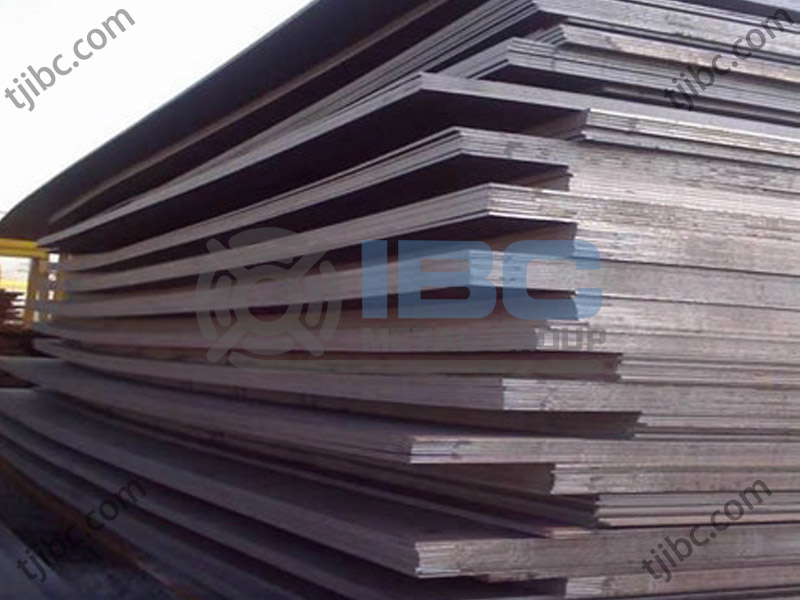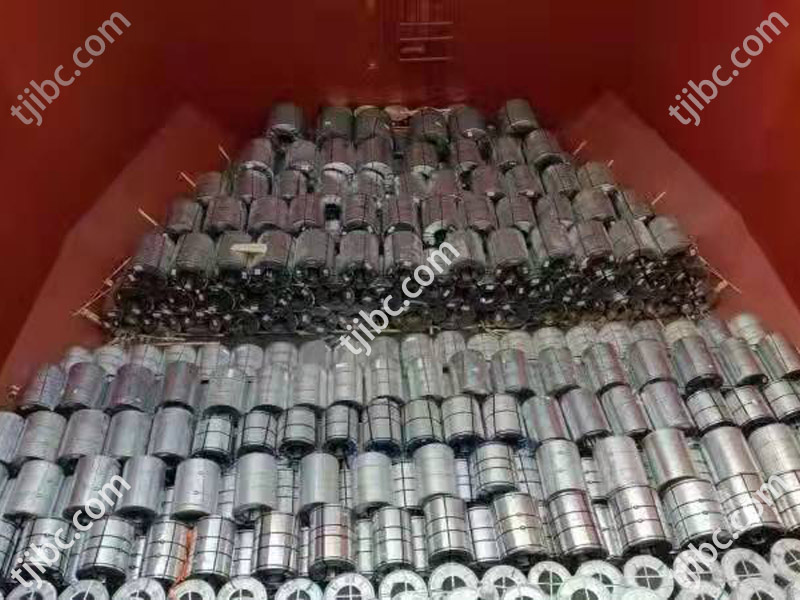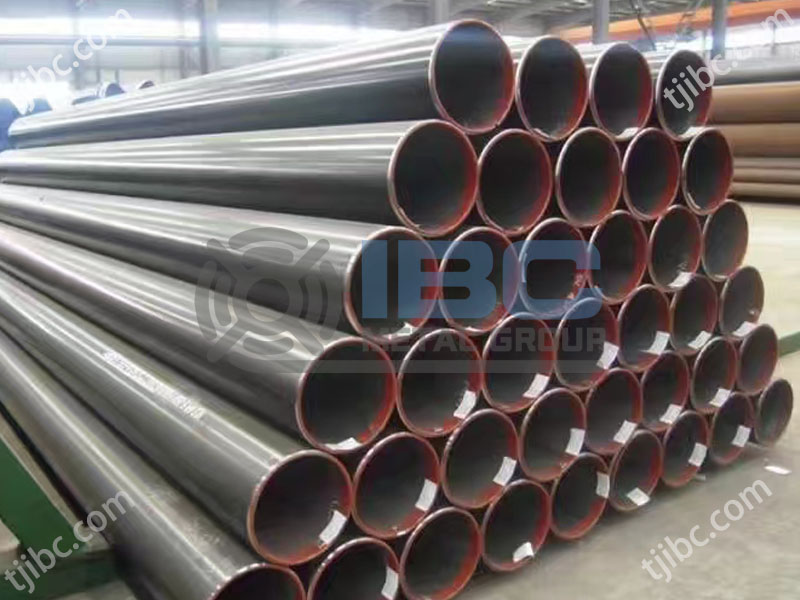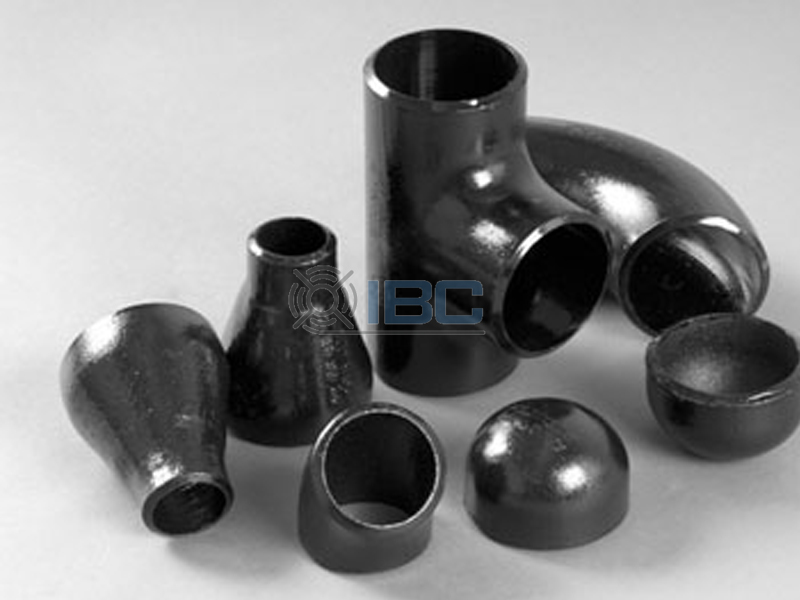Product Performance of EN 10028-2 Pressure Vessel Steel
Strength and toughness: EN 10028-2 pressure vessel steel plate must have high strength and toughness. In this way, it can withstand a certain air pressure and water pressure, and the use requirements at different temperatures (high, medium and low temperatures). This steel plate not only requires a high yield strength and tensile strength, but also needs to be able to absorb a large amount of energy before breaking, showing good toughness.
Material uniformity: In order to ensure the safety performance of the pressure vessel, the material of the pressure vessel plate must be uniform. The factory will strictly limit the existence of harmful defects. This includes strict control of defects such as inclusions, bubbles and cracks inside the steel plate.
Weldability: This steel plate has good weldability to meet the welding needs in the manufacturing process. Good welding performance can ensure the quality of the weld, thereby improving the overall performance of the pressure vessel.
EN 10028 10CrMo910
10CrMo910 steel alloy is a material specifically designed to enhance heat and corrosion resistance, showing its unique advantages in a wide range of industrial applications. It is especially prominent in comparison with similar alloys such as 16Mo3 and 13CrMo45.
The mechanical properties of this alloy are as follows:
| Grade | Thickness | Yield Strength | Tensile Strength | Elongation(A) | Impact Energy KV at Test Temperature | ||
| (mm) | 50 | 100 | 150 | -20 | 0 | +20 | |
| MPa | MPa | % | J | J | J | ||
| 10CrMo910 | < 16 | 310 | 480/630 | 18 | – | – | 31 |
| > 16 < 40 | 300 | 480/630 | 18 | – | – | 31 | |
| > 40 < 60 | 290 | 480/630 | 18 | 27 | |||
| > 60 < 100 | 280 | 470/620 | 17 | 27 | |||
| > 100 < 150 | 265 | 460/610 | 17 | 27 | |||
| > 150 < 250 | 250 | 450/600 | 17 | 27 | |||
EN 10028 13CrMo45
13CrMo4-5 is a chrome-molybdenum alloy steel manufactured according to the European standard EN 10028. The chemical composition of the steel mainly includes carbon (C), silicon (Si), manganese (Mn), phosphorus (P), sulfur (S), chromium (Cr), molybdenum (Mo) and so on. In high temperature environment, it can still maintain good strength and toughness. So the material can make parts and devices that need to withstand high temperatures.
The mechanical properties of this alloy are as follows:
| Grade | Thickness | Yield Strength | Tensile Strength | Elongation(A) | Impact Energy KV at Test Temperature | ||
| (mm) | 50 | 100 | 150 | -20 | 0 | +20 | |
| MPa | MPa | % | J | J | J | ||
| 13CrMo45 | < 16 | 300 | 450/600 | 19 | – | – | 31 |
| > 16 < 60 | 290 | 450/600 | 19 | – | – | 31 | |
| > 60 < 100 | 270 | 440/590 | 27 | ||||
| > 100 < 150 | 255 | 430/580 | 27 | ||||
| > 150 < 250 | 245 | 420/570 | 27 | ||||
EN 10028 16Mo3
16Mo3 is a high-performance chrome-molybdenum steel alloy that is unique in that it is designed to meet extreme operating conditions.
The alloy is widely accepted and used in various pressure vessels. These containers often need to continue to operate safely under complex conditions of high pressure and high temperature. Such as distillation towers in oil refineries, reactors in chemical processing plants and steam boilers in the power industry.
| Grade | Thickness | Temperature(DEG C) | ||||||||
| (mm) | 50 | 100 | 150 | 200 | 250 | 300 | 350 | 400 | 450 | |
| MPa | MPa | MPa | MPa | MPa | MPa | MPa | MPa | MPa | ||
| 16Mo3 | < 16 | 273 | 264 | 250 | 233 | 213 | 194 | 175 | 159 | 147 |
| > 16 < 40 | 268 | 259 | 245 | 228 | 209 | 190 | 172 | 156 | 145 | |
| > 40 < 60 | 258 | 250 | 236 | 220 | 202 | 183 | 165 | 150 | 139 | |
| > 60 < 100 | 238 | 230 | 218 | 203 | 186 | 169 | 153 | 139 | 129 | |
| > 100 < 250 | 218 | 211 | 200 | 186 | 171 | 155 | 140 | 127 | 118 | |
| > 150 < 250 | 208 | 202 | 191 | 178 | 163 | 148 | 134 | 121 | 113 | |
Application of EN 10028-2 Pressure Vessel Steel
1. Petrochemical industry
Refineries: EN 10028-2 steel plates can be used to manufacture pressure vessels for the oil refining process. Such as reactors, storage tanks, heat exchangers, etc., these devices need to withstand high temperature and high pressure chemical media.
Natural gas processing and storage: Manufacture of liquefied natural gas (LNG) storage tanks, pressure vessels for compressor stations, and booster station equipment for natural gas pipeline transmission systems.
2. Energy industry
Nuclear power: In nuclear power plants, EN 10028-2 pressure vessel steel is used to make nuclear reactor pressure vessels, steam generators and other critical equipment. These devices require a high level of safety and reliability.
Thermal power generation: boilers and their auxiliary equipment, such as drum, superheater, reheater, etc. These components are subjected to high temperature and high pressure steam environments.
3. Chemical industryFertilizer production: In the production process of synthetic ammonia, urea and other fertilizers, it can manufacture synthetic towers, ammonia separators, urea reactors and other equipment.
Fine chemical: Manufacture a variety of chemical reactors, separators, evaporators, etc., processing a variety of organic or inorganic compounds.

Contact with us today!



